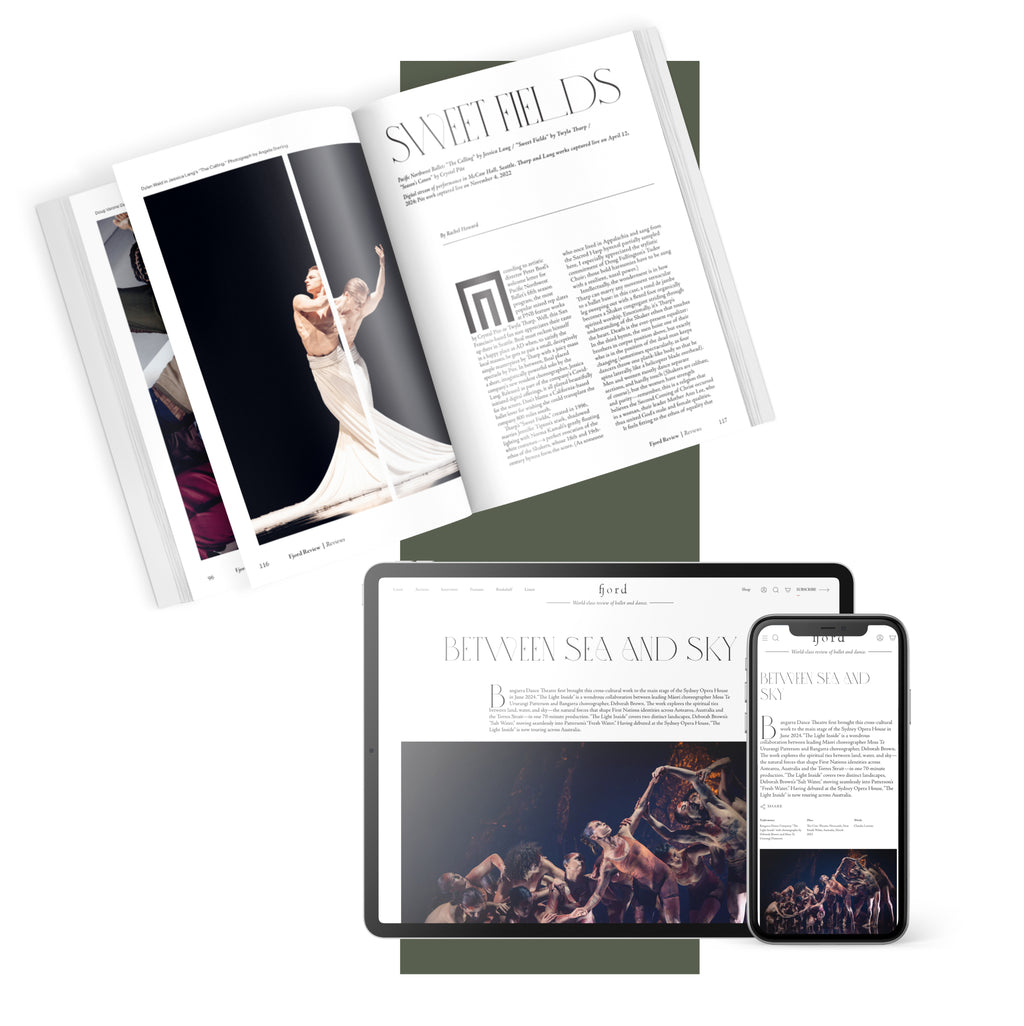Fampitaha, fampita, fampitàna means “comparison, transmission, rivalry” in Malagasy. The program notes, describe it as “a diasporic mythology she [Ratsifandrihana] wished she’d heard.” One could call the work an excavated narrative of the children of diasporas.
The work got off to captivating start as the four performers, each dressed in improvised courtly and festival attire (costumes by Harilay Rabenjamina), put on long, white, satin gloves to take part in a “formal” dance. Joël Rabesolo stepped off to the left with his electric guitar to accompany the barefoot dancing couple performing a quasi-Renaissance dance. In this cheeky interpretation of a courtly dance, the couple proceeded directly forward toward the audience, formally holding inside hands, performing the sequence of steps. Afterwards, they parted, returned upstage, and began the downstage-moving sequence again. With each repetition, the dance and the music veered into modifications—at first, ever so slightly. Then as the music swerved into a minor key, the dance diverged further from the original with bodies breaking from upright into sweeping curves, restrained steps giving way to high kicks, and unshod feet defiantly flexed. By the end of the scene, the third dancer had joined, the dancers had donned circular capes (originally spread on the floor like picnic blankets), and they were spinning like whirling dervishes to a heavy metal guitar solo. This incisive commentary on forced cultural assimilation in foreign lands was nothing short of brilliant.











comments